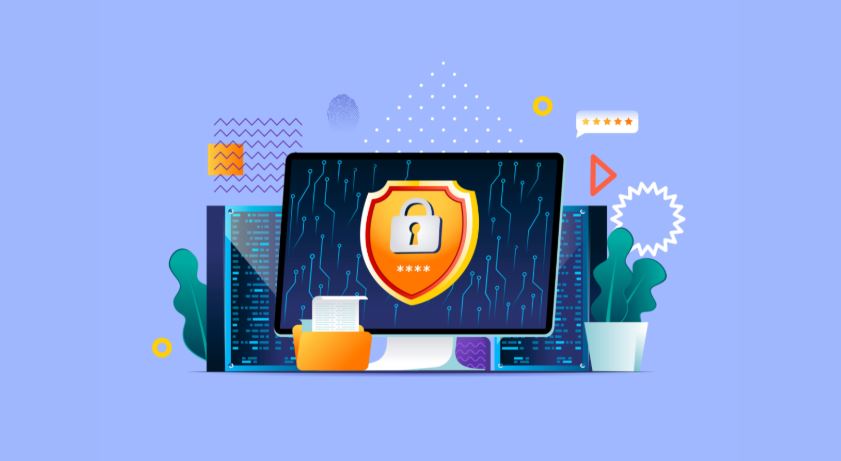Quick Navigation
What Windows Security Tools Should You Use to Stay Safe?
Modern versions of Windows include a growing set of built-in security tools. At the same time, third-party solutions continue to expand in scope and complexity. This often leaves users uncertain about what is actually necessary, what overlaps, and what genuinely improves safety.
Windows security is no longer defined by a single antivirus program. It is an ecosystem of protective layers that work together to reduce risk, detect threats, and limit damage when something goes wrong. Understanding these tools, their roles, and their limits is essential for maintaining a secure system.
This guide explains Windows security tools from a practical and risk-aware perspective, focusing on how they contribute to real protection rather than marketing claims.
windows security tools: understanding the security ecosystem
Windows security tools are components designed to protect the operating system, user data, and network activity from malicious or unintended harm.
Why security is layered in Windows
No single tool can stop every threat. Windows security relies on defense in depth, where multiple mechanisms cover different attack surfaces.
If one layer fails, another may still reduce impact.
Built-in tools versus third-party solutions
Built-in tools are tightly integrated with the operating system. Third-party tools often provide additional features, but they also introduce complexity.
Choosing wisely avoids redundancy and instability.
Risk-based selection instead of tool accumulation
More tools do not automatically mean more security. Overlapping protections can conflict and reduce effectiveness.
Security decisions should align with actual usage patterns and threat exposure.
Core built-in Windows security features
Windows includes several foundational security components that operate continuously.
Microsoft Defender Antivirus
Microsoft Defender Antivirus provides real-time protection against malware, spyware, and other malicious software.
It integrates deeply with the operating system and receives frequent updates.
Real-time and cloud-based protection
Real-time scanning monitors file activity, while cloud-based protection improves detection speed using global threat intelligence.
Together, they form the baseline defense for most systems.
Effectiveness for everyday use
For typical users, built-in antivirus protection is sufficient when combined with safe behavior.
This tool connects directly with endpoint protection basics at the operating system level.
Windows Firewall and network protection
Network-level defenses are as important as file-based scanning.
How Windows Firewall works
Windows Firewall controls inbound and outbound network traffic based on defined rules.
It blocks unsolicited connections and limits unauthorized communication.
Default configuration versus custom rules
Default firewall settings provide strong general protection. Custom rules are useful for advanced scenarios but require careful management.
Incorrect rules can weaken security.
Public and private network profiles
Windows adjusts firewall behavior based on network type. Public networks receive stricter controls than private ones.
Correct profile selection reduces exposure on untrusted networks.
Account and identity protection tools
Identity-based attacks are increasingly common. Windows includes tools to address this risk.
User Account Control (UAC)
UAC limits administrative privileges and prompts users before critical system changes occur.
It reduces the impact of malware running under standard user permissions.
Windows Hello and credential protection
Windows Hello replaces traditional passwords with biometric or PIN-based authentication tied to hardware security.
This approach reduces credential theft risks.
Local versus Microsoft accounts
Account type affects recovery options and cloud integration. Each has distinct security implications.
These controls align with identity and access management principles.
System integrity and exploit protection
Preventing system-level compromise requires additional safeguards.
Secure Boot and firmware trust
Secure Boot ensures that only trusted software loads during system startup.
It protects against boot-level malware that operates before the OS loads.
Exploit protection features
Windows includes exploit mitigation technologies that harden applications against memory-based attacks.
These protections operate silently in the background.
Core isolation and virtualization-based security
Advanced systems use hardware virtualization to isolate critical processes.
This significantly raises the difficulty of kernel-level attacks.
Data protection and recovery tools
Security also involves limiting damage when prevention fails.
BitLocker drive encryption
BitLocker encrypts storage drives, protecting data if a device is lost or stolen.
Encryption operates transparently once enabled.
Backup and recovery options
Built-in backup tools allow recovery from ransomware or accidental deletion.
Backups are a security control, not just a convenience.
System restore and rollback mechanisms
Restore points help recover from faulty updates or configuration errors.
This capability reduces downtime after incidents.
These tools relate directly to data resilience strategies.
Third-party Windows security tools: when they make sense
Built-in tools are not always sufficient for every scenario.
Advanced threat detection needs
High-risk environments may require tools with enhanced behavioral analysis or centralized management.
These tools are common in enterprise contexts.
Parental control and monitoring software
Some users need content filtering or usage tracking beyond Windows defaults.
Third-party tools often specialize in this area.
Avoiding security tool conflicts
Running multiple antivirus engines simultaneously can cause system instability.
Only one real-time antivirus should be active.
Practical field observation from security assessments
In numerous system security reviews, a consistent issue emerges. Many compromised systems had strong tools installed but poor configuration or outdated software.
In several cases, users disabled warnings or ignored update prompts, effectively neutralizing protections. This pattern demonstrates a critical insight. Security tools are only effective when they are understood and maintained.
Configuration discipline matters more than tool quantity.
How to choose the right combination of tools
Effective selection balances protection and usability.
Assessing personal threat exposure
Users who browse widely, download frequently, or use public networks face higher risk.
Their security posture should reflect this reality.
Aligning tools with usage patterns
Gamers, professionals, and casual users have different needs.
Security tools should support, not obstruct, daily activity.
Keeping security manageable
Complex setups increase misconfiguration risk. Simplicity improves reliability.
This approach connects with risk-based security planning.
Common mistakes that reduce Windows security
Awareness prevents self-inflicted vulnerabilities.
Disabling built-in protections unnecessarily
Turning off firewall or antivirus components for convenience exposes the system.
Temporary changes often become permanent.
Delaying system updates
Security patches address known vulnerabilities. Delays extend exposure windows.
Updates are a primary defense mechanism.
Over trusting a single tool
No tool replaces informed behavior. Phishing and social engineering bypass technical defenses.
User awareness remains essential.
Long-term security maintenance practices
Security is an ongoing process.
Regular review of security settings
Periodic reviews ensure that protections remain active and relevant.
Changes in usage may require adjustments.
Monitoring security notifications
Alerts provide early warning of issues. Ignoring them undermines protection.
Understanding alerts improves response quality.
Learning from incidents
Each incident reveals weaknesses. Adjusting configurations after problems improves resilience.
For neutral background reference, Windows operating system security overview provides general context without commercial influence.
Frequently Asked Questions (FAQ)
What are the most important Windows security tools?
Microsoft Defender, Windows Firewall, and account protection features form the core.
Are built-in Windows security tools enough?
For most users, yes, when properly configured and updated.
Should I install third-party antivirus on Windows?
Only if you have specific needs not covered by built-in tools.
Can Windows security tools slow down my PC?
Properly configured tools have minimal performance impact.
Closing perspective
Windows security is not about installing everything available. It is about understanding which tools address real risks and using them correctly. When built-in protections are combined with informed behavior and consistent maintenance, they provide a strong and reliable security foundation.





